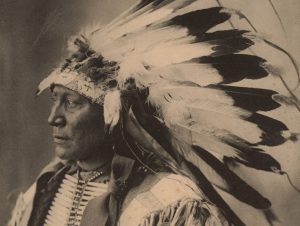The COVID-19 pandemic may be in the rear-view mirror for most people, but three years ago it made an extensive impact upon the hospitality and entertainment industries, shuttering businesses, throwing millions out of work, and causing revenues to go from millions of dollars to zero nearly overnight. Those financial blows were especially devastating to Native American tribes, many of which were heavily reliant upon earnings generated by casinos operated on tribal lands. Now, tribes are looking beyond the casino business, moving into increasingly diverse alternative revenue streams, including consulting for the federal government.
“While enterprise diversification can come with costs, its necessity became clear during the early phases of the pandemic, when tribally owned casinos were shut down to mitigate COVID-19 transmission and gaming-dependent tribes were left with little incoming revenue,” according to a new report from the Center for Indian Country Development at the Federal Reserve Bank of Minneapolis.
Over the past decade, many tribes have gotten involved in businesses like construction, trucking, health care, cannabis, marketing, and real estate, while others have been branching out more recently. The Center for Indian Country Development Report has found that many tribes are increasingly looking to federal contracting to broaden their revenues, with many tribes landing contracts from the U.S. Department of Defense.
Tribes such as the Nottawaseppi Huron Band of the Potawatomi in Michigan were better able to weather pandemic-related shutdowns due to their non-gambling businesses, including a firm involved in drone development for the federal government that was deemed ‘essential.’ Its economic development entity, Waséyabek Development Company LLC, has devised a plan to generate at least one-third of the revenue required to support the tribe from non-gambling activities by 2040. Others, like the Mashantucket Pequots, diversified into non-gambling endeavors like a planned family resort and water park that will eventually make up more than half of the tribe’s portfolio, providing additional stability and certainty.
Despite the diversification efforts, tribes are certainly not ready to cash in all their chips just yet: the National Indian Gaming Association reported that FY2021 saw gross revenues of $39 billion, the most in tribal history. Tribes such as the Mohegan Tribe in eastern Connecticut and the Chickasaw Nation in Oklahoma are working to secure gambling licenses in New York tod build new casinos and entertainment districts, and no tribe has plans to fully exit the gaming industry. By striking a careful balance between diversification and maximizing revenue from existing gambling businesses, tribes should be able to successfully weather future uncertainty and even thrive on it.

























